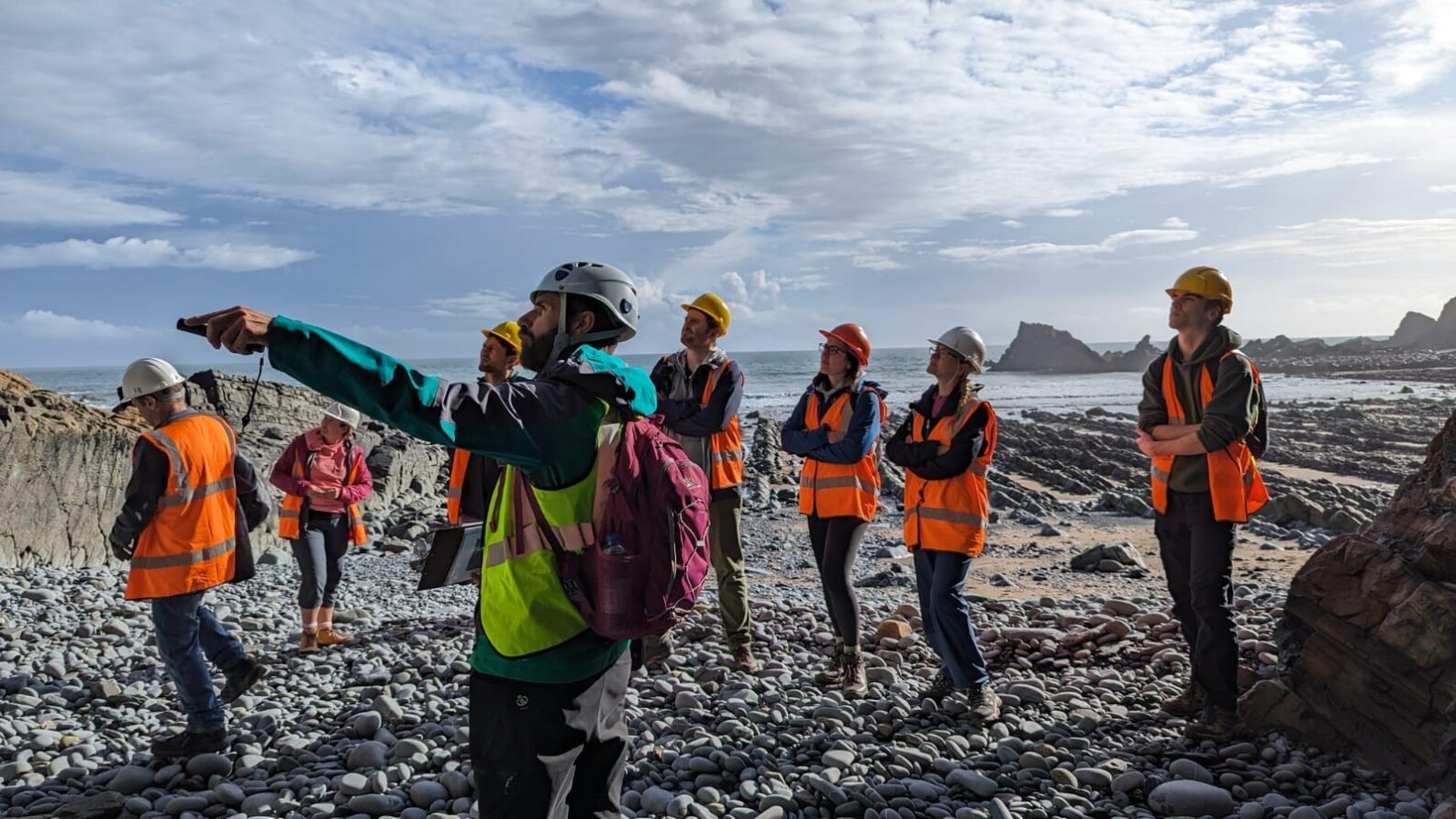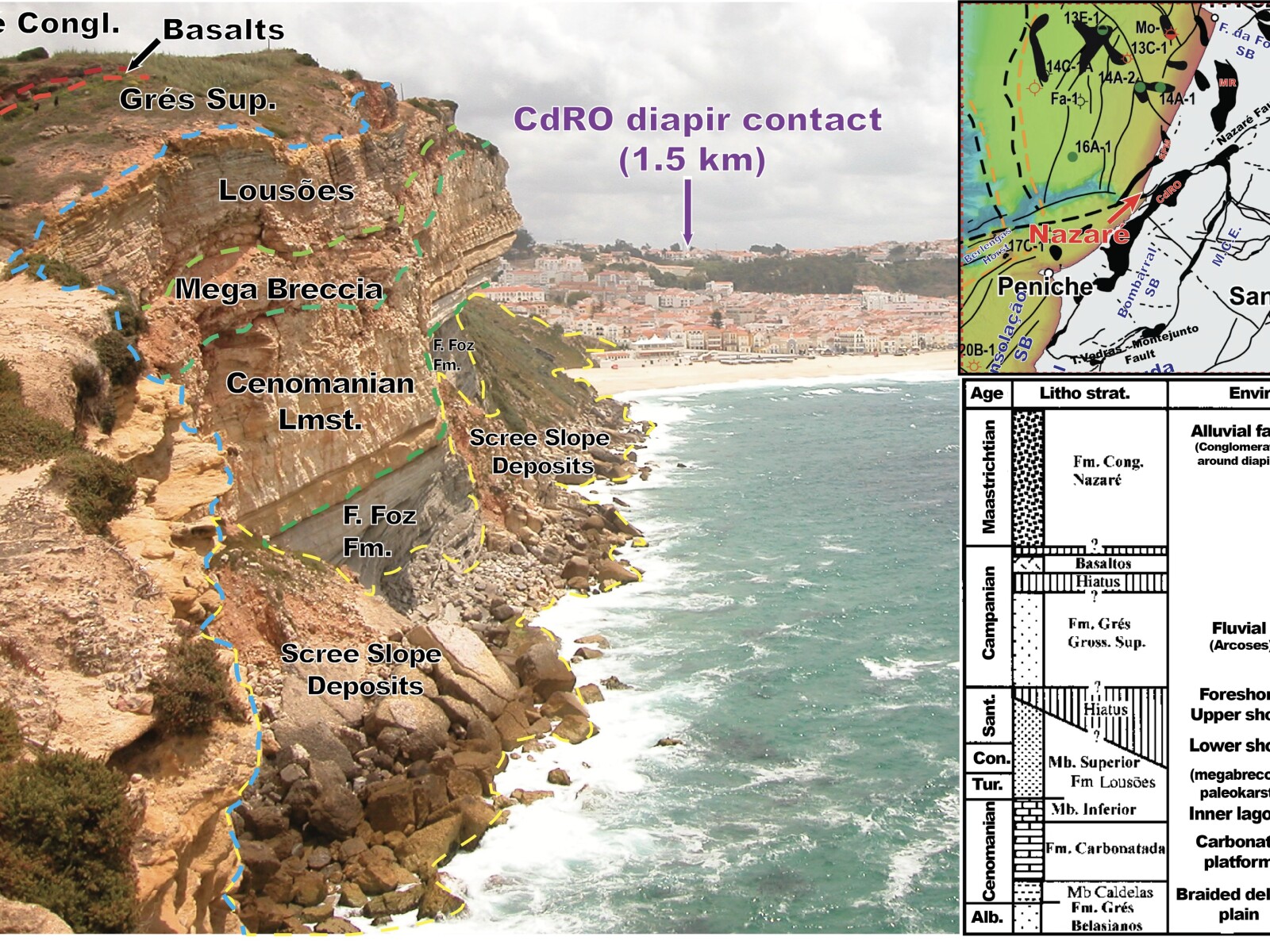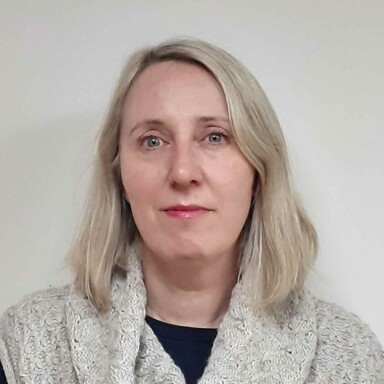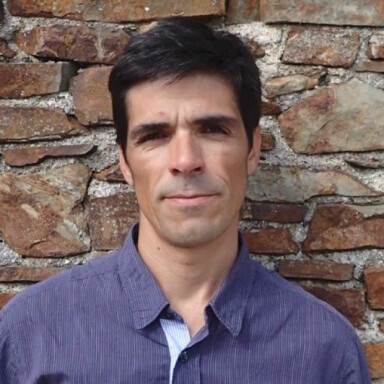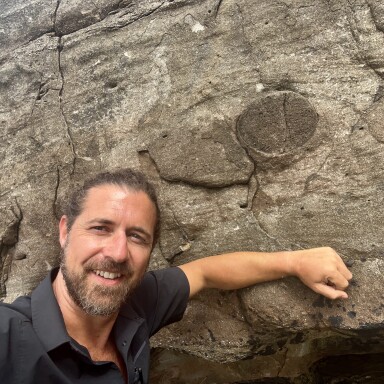The wide variety of locations available to visit on our field excursions offer the opportunity to cover a range of content:
- General geology, sedimentology, palaeontology and structural geology both at a site and regional level
- Petroleum geology and geochemistry
- The petroleum system of the Wessex Basin (Dorset & South Devon, UK). "The Jurassic Coast", a World Heritage Site allows a geological "walk through time" through the Wessex Basin from the Triassic to the Cretaceous. Sites include marine source rocks, reservoir rocks and oil seeps, all set in a dynamic tectonic setting.
- The petroleum system of the South Wales Basin (Glamorgan & Monmouthshire, UK). The “South Wales Coal Field”, a region known for its coal and iron deposits, is also the only existing site in the coalfield from which palynomorphs have been obtained, allowing the approximate identification of palynological zones and correlations with European sequences.
- Petroleum system of the Lusitanian Basin (Lisbon & Western Country regions, Portugal); looking into rifting, inversion and salt tectonics features – In collaboration with Geo Logica (Portugal).
- Underground energy (geothermal, hydrogen) and nuclear storage. Integrating field observations and seismic data in complex tectonic settings – In collaboration with Geo Logica (Portugal).
- Post-rift magmatism along the West Iberia Margin - Onshore vs offshore magmatic structural styles: a comparison between field and seismic data interpretation of the Western Iberian Margin Relevance for CCUS, natural H2 and O&G – In collaboration with Geo Logica (Portugal).
Who should attend?
These field trips are suitable for groups ranging from industry geoscience specialists to non-geologists, with the level of detail and the nature of discussions being pitched to meet the particular range of experience of the participants.
Field trips and courses can be tailored to meet the needs of individual clients, and can include:
- Field observations and discussions
- Team building exercises
- Classroom training (delivered in a hybrid class-field format), with workshops using relevant geochemical data (e.g. interpretation and basin modelling)
- Local Museum-Geopark visits

